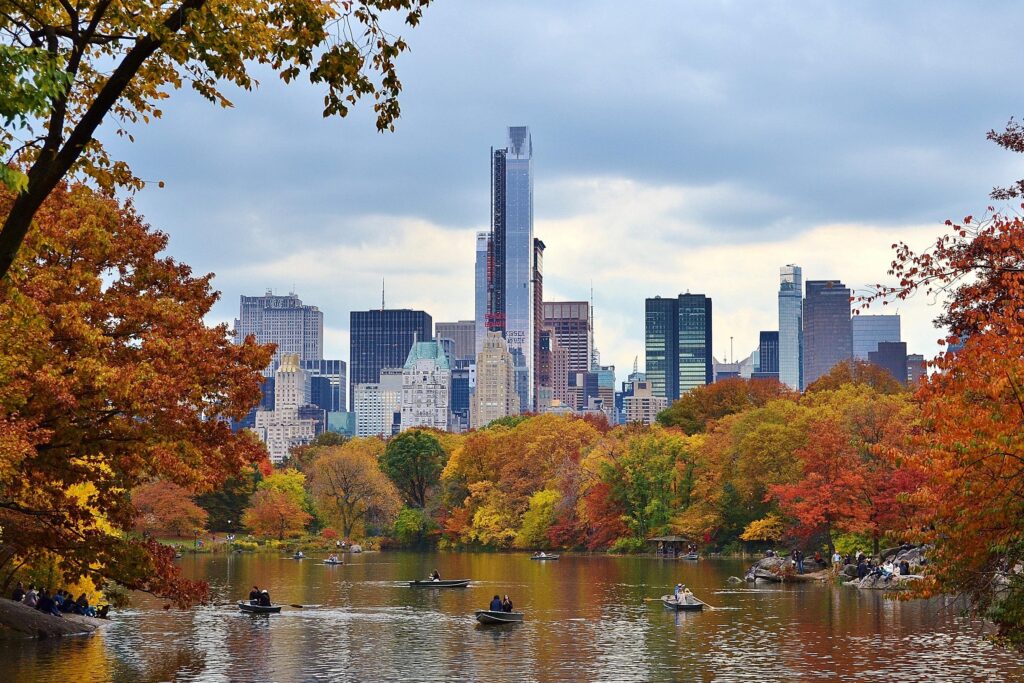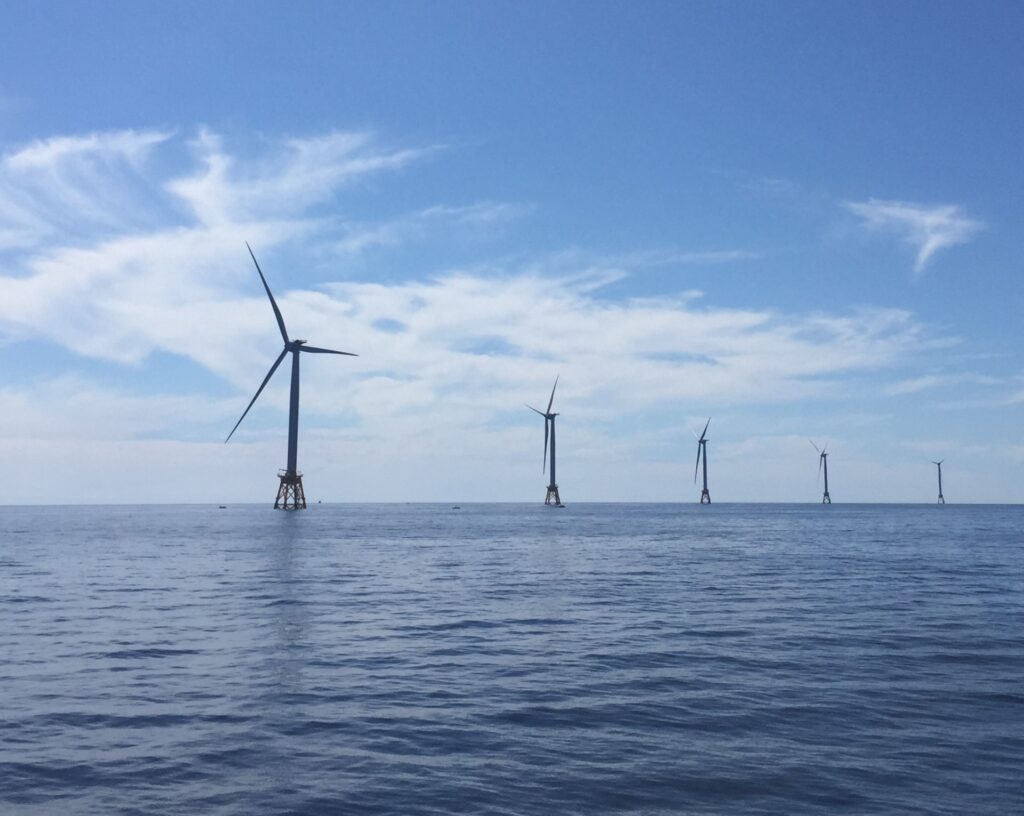Funding Details
Program goal
To mitigate climate change, make communities more resilient to climate change, protect public health from the hazards of toxic chemicals and pollutants, and preserve biological diversity.
Grants are made to
Promote more environmentally sustainable, resilient, and just communities that mitigate climate change by:
- Promoting energy efficiency and alternative sources of energy for buildings.
- Shifting to electric or low-emission vehicles and greater use of mass transit.
- Promoting a smarter, more resilient grid and distributed (on-site) generation.
- Reducing emissions from existing fossil fuel-powered facilities and extraction activities.
- Establishing regional programs, performance standards, and regulations that help reduce emissions.
Make communities, especially the most disadvantaged, more resilient to a changing climate by:
- Creating infrastructure that reduces stormwater runoff and absorbs storm surges.
- Protecting shoreline communities by conserving or enhancing natural barriers.
- Encouraging more sustainable building design and land use through policy reforms.
- Better planning and preparation for weather-related emergencies, especially for low-income and other vulnerable residents.
Protect public health from the hazards of toxic pollutants by:
- Supporting targeted scientific research that can be used to develop policy.
- Promoting safer chemical and heavy metal policies and practices, especially for infants, children, and other vulnerable people.
- Eliminating toxic chemicals from products through market campaigns focused on retailers and manufacturers.
- Enhancing protections for low-income communities near polluting facilities.
- Minimizing the hazards of new and expanded fossil fuel extraction on nearby communities.
Preserve biological diversity through habitat conservation by:
- Establishing, enhancing, and monitoring wildlife migration corridors; and
- Supporting functional connectivity between fragmented habitat that enables species to move and live safely
We encourage initiatives that cut across these program areas, especially those focused on smart growth, sustainable agriculture and regional food systems, and sustainable production.
With the exception of those focused on New York State, all projects must benefit more than one U.S. state or territory to be considered.
Each year, we make only two or three international grants to U.S. organizations that are building the capacity of government, academic institutions, private sector entities, and nonprofits to:
- Protect biodiversity;
- Improve environmental health; and
- Reduce greenhouse gases around the world
The National and International Environment Program is shifting to a one-step RFP process from a previous two-step LOI process. Proposals can be submitted through the Grantseeker Portal during an eight-week window each winter. This window generally opens in late February.
Read the background paper that informed this grantmaking strategy here.
Want to learn more?
Our program directors host regular information sessions for new applicants. Register today!

Recent grants:
| Organization | Summary |
|---|---|
Advanced Energy Economy Institute |
to help members of public utility commissions support the transition to clean energy. |
Environmental Advocates of New York, Inc. |
to help localities and the agricultural sector implement New York’s Climate Law. |
Businesses for Conservation and Climate Action |
to support the environmental leadership of localities and Native American business and civic leaders. |
Friends of the Earth |
to promote air pollution mitigation efforts in eastern ports. |
BlueGreen Alliance Foundation |
to encourage responsible development of offshore wind power. |
Caribbean Mangrove Coalition |
to conserve and expand mangrove forests in the Caribbean Basin. |
Southern Environmental Law Center |
to help coastal communities in the Southeast become more resilient to climate change. |
Our Climate Education Fund |
to support young climate activists. |
Coalition of Anglers for Sustainable and Thriving Fisheries |
to advocate for better management of Atlantic coast fisheries as climate change accelerates. |
Just Transition Fund |
to promote clean energy investments in Appalachian communities affected by the fading coal industry. |
Environmental Law Institute |
to educate state, federal, and foreign judges about climate science. |
Yale School of the Environment |
to support fellowships for graduate and undergraduate students of color at leading environmental organizations. |
First Peoples Worldwide |
to protect the interests of Indigenous peoples affected by the mining of minerals needed to transition to clean energy. |
Urban Sustainability Directors Network |
to support the use of green space as a climate mitigation and adaptation strategy in urban settings. |
Community Foundation Opportunity Network |
to create a national network of community foundations to address climate change. |
International Union for Conservation of Nature and Natural Resources – US |
to develop and test an international certification system for nature-based solutions. |
WE ACT for Environmental Justice |
to encourage federal officials to prioritize environmental justice communities when implementing new laws and policies. |
Trustees of Columbia University, Mailman School of Public Health |
to foster better understanding of the public health impacts of proposed transportation policies along the Eastern Seaboard. |
Smart Growth America |
to promote installation of renewable energy technology on brownfields across the Northeast. |
Green Recovery Alliance |
to help states and localities use federal infrastructure funding to support a green recovery. |
Riverkeeper, Inc. |
to promote better use of city green spaces to manage runoff and adapt to climate change. |
U.S. Climate Alliance |
to help governors understand and access federal funding to address climate change. |
Natural Areas Conservancy |
to research and report on the value of urban forests for climate adaptation and stormwater management. |
Lawyers for Good Government |
to help disadvantaged communities access new federal climate and clean energy funding. |
Center for Biological Diversity, Inc. |
to protect wildlife corridors and intact habitats nationwide |
CALSTART |
to encourage a global transition to zero-emission medium- and heavy-duty vehicles. |
Ceres, Inc. |
to decarbonize medium- and heavy-duty vehicles in several states. |
Tri-State Transportation Campaign, Inc. |
to support implementation of congestion pricing and other mass transit reforms. |
Curious about what else we fund?
Answer a few quick questions to find out what funding opportunities align with your organization’s work.

